2018 Videos and Audio
The Monterey Summer Symposium on Russia (MSSR) is a component of the Monterey Initiative in Russian Studies (MIR). The following are videos and podcasts from MSSR 2018 lectures.
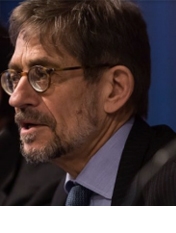
Keynote Address: Thomas Graham
Thomas Graham is a managing director at Kissinger Associates, Inc., where he focuses on Russian and Eurasian affairs. He was Special Assistant to the President and Senior Director for Russia on the National Security Council staff from 2004 to 2007 and Director for Russian Affairs on that staff from 2002 to 2004. From 2001 to 2002, he served as the Associate Director of the Policy Planning Staff of the Department of State. From 1998 to 2001, Mr. Graham was a senior associate in the Russia/Eurasia program at the Carnegie Endowment for International Peace. From 1984 to 1998, he was a Foreign Service Officer. His assignments included two tours of duty at the U.S. Embassy in Moscow, where he served as head of the political/internal unit and acting political counselor. Between tours in Moscow, he worked on Russian and Soviet affairs on the Policy Planning Staff of the Department of State and as a policy assistant in the Office of the Undersecretary of Defense for Policy. Graham is one of the founders and co-Directors of the Russian Studies Project at Yale.
In English
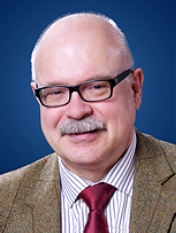
Keynote Address: Dr. Dmitri Trenin
Dr. Trenin, Director of the Carnegie Moscow Center, is chair of its Foreign and Security Policy Program. He has been with the Carnegie Moscow Center since its inception in 1993. He retired from the Russian Army in 1993. From 1993–1997, Trenin held a post as a senior research fellow at the Institute of Europe in Moscow. In 1993, he was a senior research fellow at the NATO Defense College in Rome. He served in the Soviet and Russian armed forces from 1972 to 1993, including experience working as a liaison officer in the external relations branch of the Group of Soviet Forces (stationed in Potsdam) and as a staff member of the delegation to the U.S.-Soviet nuclear arms talks in Geneva from 1985 to 1991. He also taught at the War Studies Department of the Military Institute from 1986 to 1993.
In English
Roundtable Discussion: Strategic Stability
Featuring
- Linton F. Brooks - Former US Ambassador and former Under Secretary of Energy for Nuclear Security and Administrator of the National Nuclear Security Administration (NNSA)
- Matthew Rojansky - Director of the Kennan Institute and an adjunct professor at both Johns Hopkins SAIS and American University
- Brad Roberts - Director of the Center for Global Research Security at Lawrence Livermore National Laboratory
- Jeff Larson - Research professor in the Department of National Security Affairs, US Naval Postgraduate School and president of Larsen Consulting Group
Moderated by: Sarah Bidgood - Senior Research Associate and Project Manager at CNS
In English
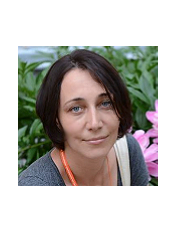
Dr. Anastasia A. Bonch-Osmolovskaya
Anastasia Aleksandrovna Bonch-Osmolovskaya is an associate professor of the Philological Department, academic director of MA programs in Computational Linguistics, and head of the Digital Humanities Group in the Faculty of the Humanities at the National Research University - Higher School of Economics in Moscow, Russia. Professor Bonch-Osmolovskaya holds a Masters in theoretical and computational linguistics from Moscow State University Lomonosov. She also received a PhD in linguistics from Moscow State University Lomonosov in 2003.
In Russian
- Digital Humanities в России: Digital Resources to Study Russian Language and Literature
video | podcast
- Online Resources and Mobile Platforms for the Study of Russian Language and Culture. What is the National Corpus of Russian Language and How to Use It?
video | podcast
- Memory Studies Through Language Data
video | podcast
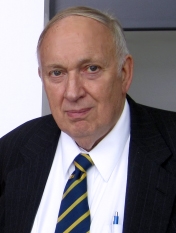
Ambassador Linton Brooks
Ambassador Brooks is a former US Ambassador and former Under Secretary of Energy for Nuclear Security and Administrator of the National Nuclear Security Administration (NNSA). He serves as an independent consultant on national security issues, a non-resident Senior Advisor at the Center for Strategic and International Studies, a Distinguished Research Fellow at the National Defense University, a member of the National Academy of Sciences Committee on International Security and Arms Control, one of the Board of Managers overseeing the operations of the Sandia National Laboratories, and an adviser to five other Department of Energy national laboratories. His government service includes service as Deputy Administrator for Nuclear Nonproliferation at the National Nuclear Security Administration, Assistant Director of the United States Arms Control and Disarmament Agency, Chief U.S. Negotiator for the 1991 Strategic Arms Reduction Treaty, Director of Defense Programs and Arms Control on the National Security Council staff and a series of Navy and Defense Department assignments as a 30-year career naval officer.
In English
- Introduction to the Russian Military and Military Doctrine
video | podcast
- Russian Nuclear Forces and Doctrine
video | podcast
- Escalation and Crisis Management
video | podcast
- Arms Control and Strategic Stability: Drinking from a Fire Hose
video | podcast
- US Interagency Decision Making
video | podcast
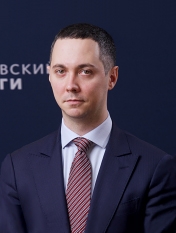
Alexander Gabuev
Alexander Gabuev is a senior fellow and the chair of the Russia in the AsiaPacific Program at the Carnegie Moscow Center. His research is focused on Russia’s policy toward East and Southeast Asia, political and ideological trends in China, and China’s relations with its neighbors—especially those in Central Asia.
In Russian

Jeffrey Larsen
Jeffrey Larsen is a research professor in the Department of National Security Affairs, US Naval Postgraduate School, Monterey, CA, and president of Larsen Consulting Group. He was director of the Research Division at the NATO Defense College, Rome, from 2013-2018. Prior to that assignment, he served for 16 years as a senior policy analyst with Science Applications International Corporation, and 21 years in the U.S. Air Force as a command pilot in Strategic Air Command.
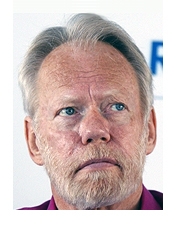
Dr. Robert Legvold
Robert Legvold is Marshall D. Shulman Professor Emeritus in the Department of Political Science at Columbia University, where he specialized in the international relations of the post-Soviet states.
In English
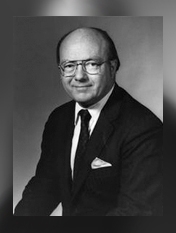
Ambassador Jack Matlock
Mr. Jack Matlock, a retired diplomat, has held academic posts since 1991: Sol Linowitz Professor of International Relations, Hamilton College, 2006; visiting professor and lecturer in public and international affairs at Princeton University, 2001-2004; George F. Kennan Professor at the Institute for Advanced Study, 1996 - 2001; Senior Research Fellow and then Kathryn and Shelby Cullom Davis Professor in the Practice of International Diplomacy at Columbia University, 1991 to 1996. Before his appointment to Moscow as Ambassador, Mr. Matlock served three tours at the American Embassy in the Soviet Union, as Vice Consul and Third Secretary (1961-63), Minister Counselor and Deputy Chief of Mission (1974-1978), and Chargé d’Affaires ad interim in 1981.
In English

Hanna Notte
Hanna Notte is a Political Officer with The Shaikh Group. She supports the organization’s engagement with Russia related to its Syria Track II Dialogue Initiative specifically, and also works on other Track II dialogues related to the MENA region. Hanna recently completed her DPhil on Russian-US cooperation in the Middle East at the University of Oxford (St. Antony’s College), from where she also received an MPhil in International Relations in 2014.
In English
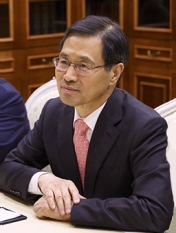
Ambassador Ro-Byug Park
Ro-Byug Park most recently served as the Ambassador of the Republic of Korea to the Russian Federation. His current position is the Secretary General of the International Conference of Asian Political Parties (ICAPP). Ambassador Park holds a Postgraduate Diploma in International Relations from the London School of Economics, as well as a Ph.D. in History from the Diplomatic Academy of the Ministry of Foreign Affairs of the Russian Federation. His dissertation was on, “History of Korean Russian Relations, Trade and Economic Aspects (1884-1903).” Later, Ambassador Park was a Visiting Fellow at Georgetown University (2007-2008). Ambassador Park is author of several books, including “Twenty Years of Economic Relations between Korea and Russia (1884-1903)” and “Paradigms of International Relations.” Both books are in Korean. Ambassador Park has received several awards for his diplomatic service, most recently the Youngsan Diplomat of the Year Award from the Seoul Forum in March 2016. Ambassador Park has worked for the diplomatic corps in Switzerland, Russia, Uzbekistan, Myanmar and the United States.
In English
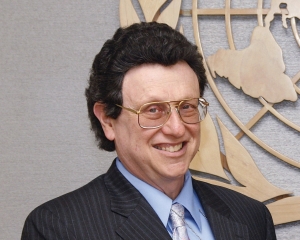
Dr. William Potter and Sarah Bidgood
Dr. William Potter is Sam Nunn and Richard Lugar Professor of Nonproliferation Studies and Founding Director of the Center for Nonproliferation Studies at the Middlebury Institute of International Studies at Monterey.
Sarah Bidgood is a Senior Research Associate and Project Manager at CNS. Her areas of research include US-Soviet and US-Russia nonproliferation cooperation, as well as nonproliferation and disarmament diplomacy.
In English
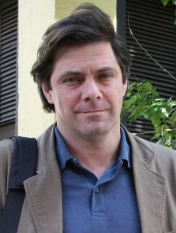
Kirill Yurievich Rogov
Kirill Y. Rogov is a senior research fellow at the Gaidar Institute for Economic Policy, a member of the Council on Foreign and Defense Policy, and a member of the supervisory board of the Liberal Mission Foundation (Moscow).
In Russian
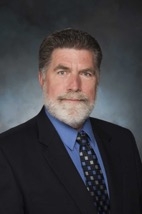
Brad Roberts
Dr. Roberts is the Director of the Center for Global Research Security at Lawrence Livermore National Laboratory. He served as Deputy Assistant Secretary of Defense for Nuclear and Missile Defense Policy where he worked as the policy director for the Obama administration’s Nuclear Posture Review and Ballistic Missile Defense Review. Dr. Roberts is the author of The Case for U.S. Nuclear Weapons in the 21st Century, which he wrote during his time as a William Perry Fellow at the Center for International Security and Cooperation (CISAC) at Stanford University.
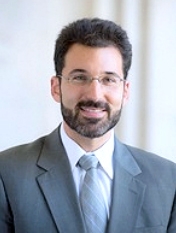
Matthew Rojansky
Matthew Rojansky is the Director of the Kennan Institute and an adjunct professor at both Johns Hopkins SAIS and American University. He is an expert on U.S. relations with the states of the former Soviet Union, especially: Russia, Ukraine, Belarus and Moldova. Matthew Rojansky serves as the U.S. Executive Secretary for the Dartmouth Conference, a track-two U.S.-Russian conflict resolution initiative begun in 1960. He has advised governments, intergovernmental organizations, and private actors on conflict resolution and efforts to enhance shared security throughout the Euro-Atlantic and Eurasian region. He was the Deputy Director of the Russia and Eurasia Program at the Carnegie Endowment for International Peace. There, he founded Carnegie’s Ukraine Program, led a multi-year project to support U.S.-Russia health cooperation, and created a track-two task force to promote resolution of the Moldova-Transnistria conflict. Matthew Rojansky was the executive director of the Partnership for a Secure America (PSA), working on arms control and nonproliferation issues. At the PSA, he coordinated high-level bipartisan initiatives aimed at repairing the U.S.-Russian relationship, strengthening the U.S. commitment to nuclear arms control and nonproliferation, and leveraging global science engagement for diplomacy. The PSA was founded by former congressman Lee Hamilton (D-IN) and former senator Warren Rudman (R-NH) with a group of two dozen former senior leaders from both political parties, seeking to rebuild bipartisan dialogue and productive debate on U.S. national security and foreign policy challenges. Matthew Rojansky has lectured at colleges and universities throughout the United States, Russia and Europe. He is frequently interviewed on TV and radio, and has written for the International Herald Tribune, the Washington Post, and Foreign Policy.

Rafal Rohozinski
Rafal Rohozinski is co-founder and principal of the SecDev Group and a senior fellow for Future Conflict and CyberSecurity at the London-based International Institute for Strategic Studies. For more than two decades Rafal has worked and undertaken research on risk and opportunity in the global digital economy, military use of cyberspace and combating violent extremism. Rafal is an active commentator on digital economy and security issues, and his work has been featured in newspapers, television, and radio shows, including the New York Times, BBC, Globe and Mail, CBC, CNN, Al Jazeera, WIRED, and the Financial Times.
In English

Yuri Saprykin
Mr. Saprykin is the author of Observation Points (2015) and has lead courses on urban and youth culture for Russia’s leading educational institutions and online resources. He took part in the relaunch of the analytical website Slon.ru and Russia’s oldest English-language publication, The Moscow Times. In the 2000s he was editor in chief of the journal, Afisha, a publication largely responsible for forming the tastes and values of the new educated urban class, the generation of “Russian Europeans.”
In Russian
- Emerging from the Underground: Counterculture and the Fall of the USSR
video | podcast
- Craving Justice: Post-Imperial Injuries in Russian Youth Culture of the 1990s
video | podcast
- Classic Russian Literature and The Conflicts of Contemporary Russia
video | podcast
- Protest vs. Patriotism: Youth Culture in Today’s Russia
video | podcast
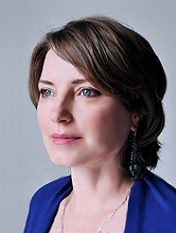
Natalia Sevagina
Natalia Sergeyevna Sevagina is an Associate in the Research and Education division of the State Tretyakov Gallery in Moscow. She completed her undergraduate education at the Russian Academy of Painting, Sculpture and Architecture in Moscow, as well as the Novoaltay College of Art and the Republican Art School in Tallinn. She received her master’s degree from the Russian Academy of Painting, Sculpture, and Architecture in Moscow. Prior to joining the staff at the Tretyakov Gallery, Ms. Sevagina taught art history, painting and drawing in secondary and tertiary educational institutions of the City of Moscow. She then served for ten years as a senior research associate at the Ilya Glazunov State Art Gallery.
In Russian
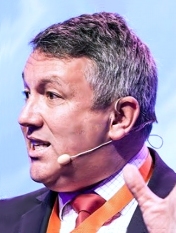
Stephan De Spiegeleire
Stephan has worked as a defense and security analyst at the RAND Corporation for nearly 10 years, interrupted by 3-year stints at SWP (Germany) and the WEU’s Institute for Security Studies (France). Since 2004 he works in research institutes in the Netherlands (Principal Scientist at HCSS and Senior Advisor Defense and Security at TNO) and teaches at Webster University and at military academies across the world. Stephan’s current main research area is international defense and security planning, with a special focus on security foresight, risk assessment, comprehensive capabilities-based planning, strategic balance of investment, performance management and human-centered defense design.
In English
- Introduction and Evolution of the Study of Soviet/Russian International Behavior: From Gaps to Bridges with Dr. Adam Stulberg
video | podcast
- Big Data and Russian International Behavior: New Horizons and Early Examples
video | podcast
- Introduction to Project RuBase with Dr. Adam Stulberg
video | podcast
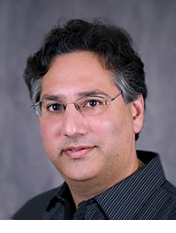
Dr. Adam Stulberg
Dr. Stulberg is Professor and Neal Family Chair; Associate Chair of Research and Co-Director at the Center for International Strategy, Technology, and Policy (CISTP) in the Sam Nunn School of International Affairs. His current research focuses on the geopolitics of oil and gas networks, energy security dilemmas and statecraft in Eurasia, Russia and “gray zone” conflicts, new approaches to strategic stability and denuclearization of military arsenals, internationalization of the nuclear fuel cycle, and implications of emerging technologies for strategic stability and international security.
In English
- Introduction and Evolution of the Study of Soviet/Russian International Behavior: From Gaps to Bridges with Stephan Spiegeleire
video | podcast
- Social Network Analysis and Russian Energy Statecraft: Part I
video | podcast
- Social Network Analysis and Russian Energy Statecraft: Part II
video | podcast
- Introduction to Project RuBase with Stephan De Spiegeleire
video | podcast

Dr. Andrei Pavlovich Tsygankov
Dr. Andrei Pavlovich Tsygankov is Professor at the departments of Political Science and International Relations at San Francisco State University. A Russian native, Dr. Tsygankov is a graduate of Moscow State University (Candidate of Sciences, 1991) and University of Southern California (Ph.D., 2000). Dr. Tsygankov authored a textbook on Russia’s Foreign Policy: Change and Continuity in National Identity (now in its fourth edition). He published several books in English and Russian including Russophobia: Anti-Russian Lobby and American Foreign Policy (2009), Russia and the West from Alexander to Putin (2012), and The Strong State in Russia (2014), as well as many journal articles.
In Russian
- История и теория в отношениях Россия-Запад
video | podcast
- Россия и Европа: сотрудничество, сдерживание и наступательность
video | podcast
- Советский опыт: наступательность, сдерживание и сотрудничество
video | podcast
- Пост-советский опыт: от попыток интеграции к наступательности и сдерживанию Запада
video | podcast
- Новые кризисы в отношениях с Западом
video | podcast
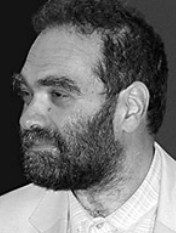
Dr. Andrei Leonidovich Zorin
Dr. Zorin is a Professor of Russian and a Fellow of New College at Oxford University as well as a professor in the Russian Presidential Academy of National Economy and Public Administration. Dr. Zorin’s course will discuss the history of Russian culture – understood in an integral way as the system of norms, expectations, prescriptions and taboos reflected in political and social institutions, religious beliefs, art, popular superstitions, behavioral practices and emotional standards. This system is complex, diverse and subject to historical changes, but at the same time it is resilient and produces traditions that shape different spheres of national life.
In Russian
- The Concept of the Transformational Leap in Russian Culture
video | podcast
- Princes, Czars, General Secretaries and Presidents: The National Attitude to the Power and the Ruler
video | podcast
- The West: The History of Love and Hatred, Westernized Elites in Russian History
video | podcast
- The Faith: A Round Trip from Orthodoxy to Communism - Religion and Ideology in Russian History
video | podcast
- Myth of “Narod:” The Changing Meaning of “Russianness” - The Ethnic, the Religious, the Social and the Ideological in the History of National Identity
video | podcast
- The Poet: Russian Literature as a Cultural Institution
video | podcast
- Russian Woman: History and Mythology
video | podcast
- The Ways to Survive I: Rebellion and Flight
video | podcast
- The Ways to Survive II: Cheating and Drinking
video | podcast
- The Joy of Russia: Vodka and Drinking in Russian Culture
video | podcast
